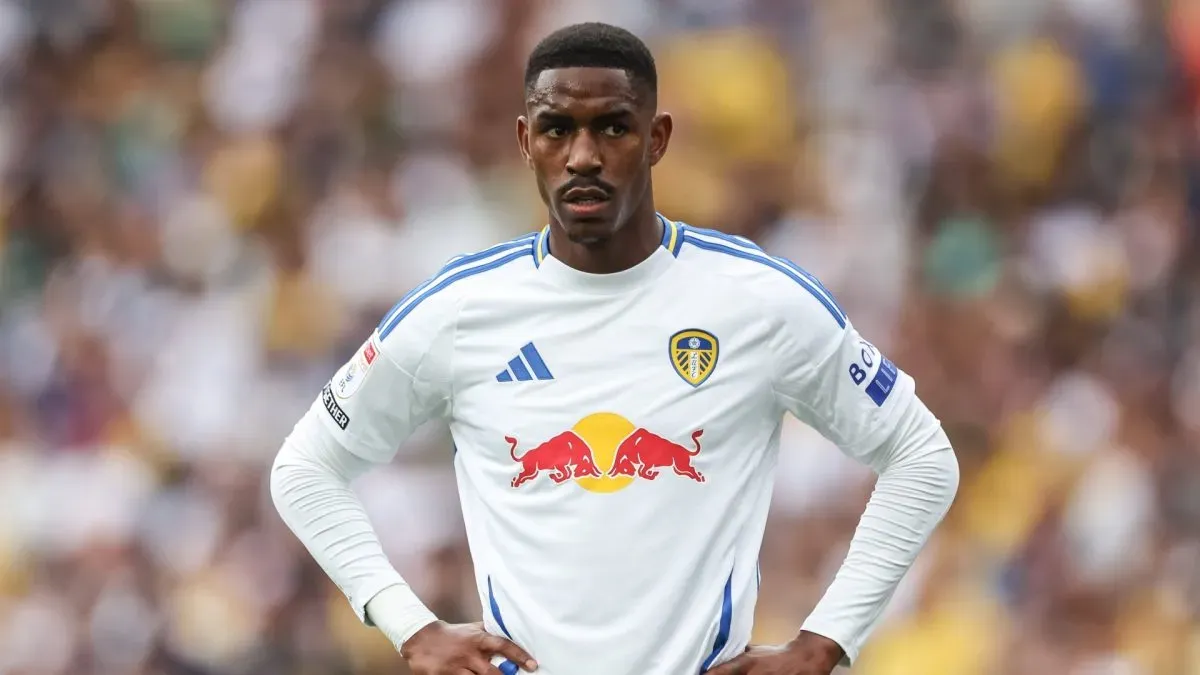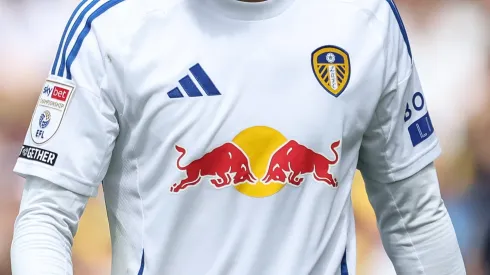In May 2024, it was announced that energy drink manufacturer Red Bull would be purchasing a minority stake in Championship side Leeds United. The Austrian company also became the main front-of-shirt sponsor of the West Yorkshire club from 2024/25, which sparked controversy in a first-of-a-kind deal in English football.
But how did an energy drinks company become associated with such a traditionally decorated English club?
From energy drink to sports magnate
Red Bull has been a juggernaut in the energy drink market for years. In 2023, Red Bull sold more than 12 billion cans worldwide. Yet, it is their expansion into ventures outside of beverages that have made it into a mammoth brand. Founder Dietrich Mateschitz expanded his vision for Red Bull outside of his homeland Austria. Consequently, the trajectory of the brand has only been upwards. The company’s vision in the 1990s started with more unorthodox and extreme sports. For example, Red Bull focused on skateboarding, BMX and skiing. Still, it was not a major player in mainstream sports.
Fast forward to 2005, and the first imprint in mainstream sport that Red Bull had was in motorsports. The birth of Red Bull Racing was a significant step in their sporting venture as Red Bull tasted success for the first time in 2010 with Sebastian Vettel and Mark Webber. In that same year, Red Bull started their empire in the football world by purchasing Austria Salzburg. It almost feels odd to call them that. Such is the power of synergy and marketing that Red Bull Salzburg almost feels more natural.
Red Bull enters soccer world in the USA
In 2006, MetroStars was purchased and rebranded to New York Red Bulls during one of the soccer booms in the United States. David Beckham’s move to the Los Angeles Galaxy one year later helped put the New York Red Bulls into a greater spotlight. The most famous footballer to don the shirt a few years later was Thierry Henry. He highlighted the success of the re-brand.
To create the Holy Red Bull Trinity of clubs in 2009 was a fifth-tier club called SSV Makranstadt, more commonly known today as RB Leipzig. German fans have always taken a stricter stance when it comes to the commercialization of the league and/or its clubs. Take the 50+1 rule which exists to serve the voice of the fans at the highest level of club ownership. The Saxony club may have swerved the regulations by calling themselves Rassenballsport Leipzig, but German fans have made no exceptions for their united distaste for the club – which still exists today.
Red Bull Bragantino is the company’s other club in the network in Brazil, whilst their most recent acquisition in July has seen the energy manufacturers buy Japanese third-tier side Omiya Ardija.
Strategy for Leeds United under the Red Bull umbrella
Some of the strategic reasons for Red Bull venturing into the English game are quite identifiable by the measure of success that Salzburg and Leipzig have recorded. After all, both have featured in European competitions consistently for several years now. Their philosophy of identifying, nurturing and profitably selling hot prospects has been a core element of their success. That is a philosophy that Leeds United have adopted, particularly in recent years – which makes the minority acquisition make sense.
After Leeds failed to secure promotion at the end of the 2023-24 season, it was an inevitable reality that many of the superstars signed for the Premier League era would be departing. The likes of Archie Gray, Crysencio Summerville and Luis Sinisterra have left the club permanently, with Wilfried Gnonto and Georginio Rutter also expected to leave for the Premier League. The most cliché term would be to call it a rebuild, but in these circumstances… it feels more like a rebrand.
The final percentage of ownership is ambiguous, with fans being told that it is not the highest nor the lowest level amongst stakeholders at the club.

Red Bull grabbed the horns of The Whites early on without heavily (nor publicly) implying that change is coming. Leeds chairman Paraag Marathe spoke to The Athletic in May to explicitly mention that:
“This club is and will forever be Leeds United Football Club. It’s not going to be the Leeds Red Bulls. To be fair, they [Red Bull] understand that. They appreciate that, they respect that. They know the legacy of this club, so it’s not something they wanted either.”
… for now.
A multi-club model
We have not seen a partnership that hasn’t had the marketing of Red Bull smothered all over it. Bragantino, Leipzig, Salzburg and New York, as previously mentioned, are all within the remits of a multi-club network in which Leeds United is embroiled. One theory of their approach could be tactical patience. Whether that be a reignition of the Super League one day or a normalization of multi-club networks = as we have seen with Manchester City and United lately – could become a common theme in years to come. By getting their hands slightly dirty in a prestigious club such as Leeds, which has already seen former Salzburg and Leipzig manager Jesse Marsch manage the club, there will be a greater motive on the horizon than the acute “this is a minority and minority-only partnership” statement by Marathe.
A front-of-shirt sponsorship is about as obvious as it comes, but the beginning of the expansion into England has already been seen with several players attending the British Grand Prix in Silverstone earlier this summer for a publicity stunt with current Red Bull world champion Max Verstappen.
Regulations
The Labour Party recently won the general election in the United Kingdom. It reintroduced the new Football Governance Bill. This grants powers to an independent regulatory body that will oversee English football’s top five divisions. Much of that was in response to occurrences such as the failed European Super League breakout in 2021. Meanwhile, it also serves the purpose of protecting club heritage and acting as an intermediary between leagues for funding issues.
The government is optimistic about bringing this together by the end of the 2024-25 season. The bill concerns Leeds in that it would protect the West Yorkshire club from changing to Red Bull Leeds.
Red Bull will be happy to play the long game when it comes to its faith in the Leeds United project. Whether it be two, three or five years, they will be comfortable in the equation of English football for now.
Should results go sideways or promotion slips, there may well be calls for a new manager. It is at that point we may get to Red Bull’s real influence on backroom decisions. The energy drink company may appoint a manager known to the Red Bull network. Consequently, there may be a shift toward the gegenpressing tactics often attributed to Salzburg and Leipzig.
However, for the time being, football spectators can only sit back and observe.
Photo: Imago















